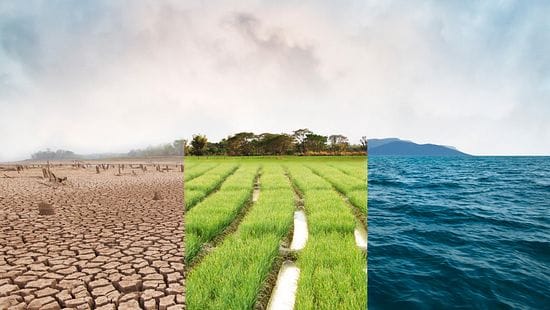Now or Never: Companies, Climate Goals and Advancing a More Sustainable Future
Ecolab supports detailed climate disclosures to help close the Say-Do Gap

As global temperatures continue to climb and leading voices like the IPCC say it is “now or never” for climate action, companies everywhere know that the choices they make today will have a lasting impact on our shared future.
To curb the most catastrophic effects of rising global temperatures, in 2019 the United Nations called for a 7.6% yearly reduction in greenhouse gas emissions. Today we continue to see temperatures and emissions trending in the wrong direction. Despite bold climate commitments, the International Energy Agency last year reported a historic 6% rise in global energy-related carbon versus the pandemic-impacted 2020.
Even as industry makes progress against detailed climate and net zero commitments, we see consumers, employees and investors express skepticism about the speed of change. As the “Say-Do Gap” creeps into the conversation, companies know they must deliver or face difficult questions from their most important communities.
As I connect with sustainability-minded leaders around the world, many are seeking a more consistent disclosure of emissions, similar to that put forward by the U.S. Securities and Exchange Commission (SEC). That is a key reason why Ecolab supports the need for a disclosure framework, like the proposed SEC climate rule. While we take issue with elements of the current proposal, like the definitions and timing, we see more detailed reporting encouraging greater transparency, concrete action plans, and positive results for the planet. We believe companies should welcome the rule as an opportunity to constructively engage on long-needed discussions about climate disclosures.
Ecolab has publicly reported our climate impact since 2008 and our reporting today is largely consistent with the SEC’s proposed requirements. This is a direct result of our desire to focus on and measure the right things, and we stand ready to help our customers on a similar journey. Our most recent Corporate Sustainability Report shows that we met or exceeded our 2021 goals and remain on track to deliver on our ambitious 2030 Impact Goals. It also demonstrates that companies can deliver strong financial performance without compromising on sustainability.
Any meaningful effort to combat climate change will require companies to address one especially vital resource — water. In 2012, the United Nations warned that without intentional changes, the gap between water supply and demand was projected to reach 40% by 2030. But despite widespread efforts to address water security, the World Resource Institute now projects an even wider gap of 56%. We know that global water use, storage and distribution contribute 10% of global greenhouse gases, and that 150 companies can have a direct impact on a third of the world’s freshwater use. That’s why it is more important than ever for industry to turn commitments into tangible action and results.
Last year, we worked with our customers to help conserve 215 billion gallons of water — enough drinking water for 734 million people — and avoid 3.6 million metric tons of greenhouse gas emissions. These results were achieved while avoiding the so-called “green premium” and without adding net cost. These businesses used proven, tangible solutions to operate more efficiently, reduce water and energy use, and accelerate growth. Through broader industry collaboration, information sharing and new mechanisms for accountability, these results can help advance a more sustainable future.
If we are serious about addressing climate change, then industry, investors and consumers must know where they stand. We believe that increasing accountability will create the incentive and momentum required for companies to reach their sustainability and business goals. And if it truly is now or never, then we call on business to support measures that build confidence, inform action plans, and encourage tangible results that close the Say-Do Gap. Now is the time for collective action — before it’s too late.



